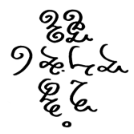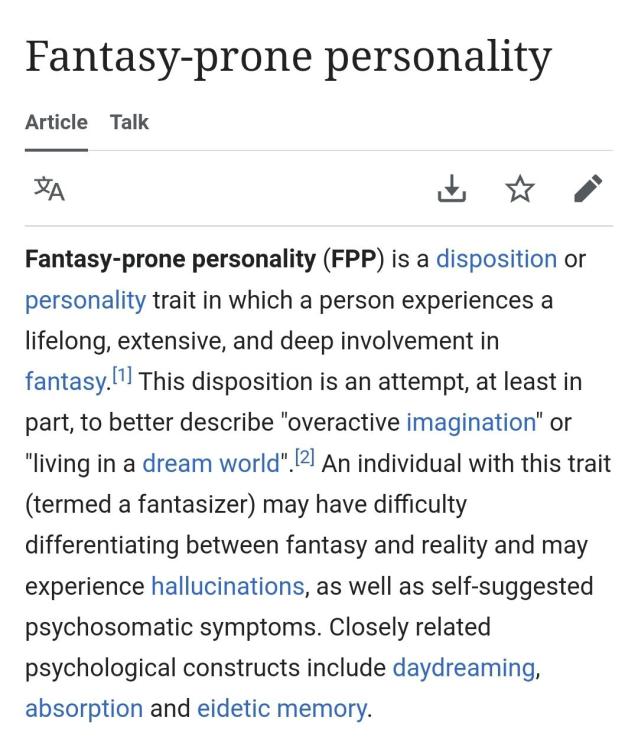-
Posts
2,325 -
Joined
-
Last visited
-
Days Won
196
Henry Ng Tsz Kiu last won the day on April 13
Henry Ng Tsz Kiu had the most liked content!
About Henry Ng Tsz Kiu

- Birthday July 25
Contact Methods
-
Website URL
Youtube: https://www.youtube.com/channel/UCvJlL2flTJzwQYwK0QhE1SA
Profile Information
-
Biography
A self entertaining and self proclaimed composer who is known for using random pauses.
Feel free to click into the About Me section for the catalogue of my compositions: https://www.youngcomposers.com/p21047/henry-ng-tsz-kiu/?tab=field_core_pfield_24 -
Gender
Male
-
Location
Hong Kong
-
Interests
Reading, Listening to music, Composing, Watching Films, Thinking
-
Favorite Composers
Beethoven, esp. Late Beethoven, Bach, Brahms, Mahler, Mozart, Haydn, Vaughn Williams, Palestrina
-
My Compositional Styles
Classical, Romantic,Tonal, Pentatonic
-
Notation Software/Sequencers
Sibelius Ultimate
-
Instruments Played
Piano
Recent Profile Visitors
Henry Ng Tsz Kiu's Achievements
-

Symphonic Overture
Henry Ng Tsz Kiu replied to Thatguy v2.0's topic in Orchestral and Large Ensemble
For a Filmscore guy like him he would just know how to maximise everything in the stupidest way and think he's the best so it's a normal level of artistry for him 🤭 -
Henry Ng Tsz Kiu started following ★PopMusic-Composition , Nocturne in A Major , Essay For String Quartet and 6 others
-

Why I compose music on paper
Henry Ng Tsz Kiu replied to PeterthePapercomPoser's topic in Composers' Headquarters
Thx for reminding me as well as yourself! Let's improve together ✌️ -

Why I compose music on paper
Henry Ng Tsz Kiu replied to PeterthePapercomPoser's topic in Composers' Headquarters
lol ofc I'm not qualified to give medical advice in mental health. I am not even giving advice lol. Who said you have mental health disease? -

Why I compose music on paper
Henry Ng Tsz Kiu replied to PeterthePapercomPoser's topic in Composers' Headquarters
I'm sure you live in your "interior" fantasy world, or correctly speaking, internal fantasy world, lol. -

Oobleck - Live Performance
Henry Ng Tsz Kiu replied to Eickso's topic in Orchestral and Large Ensemble
I read a book and watched a film before named Le Scaphandre et le Papillon. The writer who is also the protagonist of the book suffered from locked-in syndrome when he could only blink his eyes and couldn’t use any other muscles, despite having a clear mind. I cried as Fisk when watching that film and reading the book. Now I’m crying now. I can do nothing except wishing you a speedy recovery 😭 Kyrie Eleison! -

Oobleck - Live Performance
Henry Ng Tsz Kiu replied to Eickso's topic in Orchestral and Large Ensemble
Evan, I’m very sorry to hear that, and more sorry for pinging you idiotically without knowing anything you have been suffering!! Why talented people like you need to be harmed in this way??????????? You are so good at many things, composing, clarinet playing, and organising those wonderful competitions. I hope you are getting well now. Forgive me for pinging you brainlessly, and my sincerest wish you a speedy recovery🙏🙏 Henry -
This is the final draft of my best work up to date in my life, String Sextet in G flat major. Posts of seperate movements have been posted before and I'm not gonna repeat it here. If you're interested in the music details, pls check the following YCs: 1st Mov: 2nd mov: Here is the score and YT link of the work: String Sextet in G flat major.pdf Here is the structure of the work: (*denotes parts I love). The two movement structure is inspired by Mahler's 8th Symphony, so the second movement is proportionally much longer than 1st movement: 0:00 Opening credit and structure 0:11 1st Mov, 1st Part: Tao Primo (*3:35-3:47 nice bridge, **4:40-5:26 nice chromatics) 5:34 1st Mov, 2nd Part: Minore, a fugato, some little challenges (**9:40-10:10 nice retransition) 10:10 1st Mov, 3rd Part: Tao Return, a triple fugue and ending (falsely) (*11:45, **12:46 till the end) 14:48 2nd Mov, Lamentoso: Denial of Tao and realization of the realistic World full of tragedies. (*16:54, *19:11, ***19:44 sounds like my version of Bee's op.131 finale!, ***23:38-25:15 most emotional passage for me) 26:33 2nd Mov, Fugue a6: Objectification of emotions and reason. The most difficult passage for me to write technically but easiest emotionally. (**28:10-28:42 includes a 6 part stretto of 1st subject and a nice C minor modultation quoting my own Clarinet Quintet, ****30:07-31:27 a 6 part stretto of 2nd subject and one of my fav. section in the entire work with the very beautiful C minor passage, ***32:58-34:31 nice turn to pentatonics and nice disappointment) 35:03 2nd Mov, The Return. Start picking up the real self and soul and connect oneself with Tao, finding self equals to finding Tao. “I Six Books explain me and I explain Six Books (Lu Jiuyuan)”(*35:03-35:36 try to regain energy, **37:05,37:37,38:11,38:43 Nice color, **39:12 nice folk melody, ***39:15-40:15 Nice pizz.! And a very nice snap pizz! **** 40:46-41:46This passage leaves me in wonder. I don't know how do I compose this, **42:17-43:23 Nice appetizer fugato, ****43:24-44:53 Grand Climax!, ***44:54-45:41 Nice heterophonic passage which ignites my creative power for this movement, *****45:42 till end Pefect ending) This work was first inspired by Chinese Philosopher Tang Chun I's Realm of Heavenly Morality in his monumental book, The Existence of Life and the World of Spirituality, in April 2022. I wanna felt and descibed it hence I finished the whole 1st mov. I thought it's enough, until I met with my dedicatee Johnson, my respected philosophy professor Dr. Tao and my friend Merina in April 2023, and I knew it's not enough since without pain Tao isn't possible at all. After some painful incidents in 2024, I am finally able to finish the whole piece in March 2025. For me this work is about Tao, Tao lost and Tao regained. Since this would be the final post on the Sextet, please let me acknowledge people I would like to thank along my way of composing. This work is dedicated to and in memoriam Mr. Johnson Ho https://youtube.com/@beingintheworld?si=9Ch3hnk1UtluHTRF who sadly passed away in July 2024, and it's a regret the work couldn't be finished when he's alive. I would like to thank him for his great inspiration especially his postive way to deal with his illness. I would like to thank Dr. Tao, without his teaching esp. the one on the book Buddha-nature and Prajñā (?) did I realise the importance of pain and human suffering to morality and humanity, and probably won't have enough philosophical basis for this work. I would like to thank Mr. Vince Meyer @Thatguy v2.0, who acts as my musical Virgil, providing so many inspiration particularly in this piece's fugue and different motivic usage, and also make this great recording. Also, thank him for his encouragement when I kept saying I could never finish this piece. I would like to thank Dr. David Goza http://www.youtube.com/@David_Goza ,without his videos on YT I would never able to improve my own writing. I would like to thank Merina, Yvonne, Arjuna @expert21 and Peter @PeterthePapercomPoser for staying with me in my difficult times. I would like to thank Mike @chopin for his idea to go back to medieval texture in the Return. I would like to thank Luis @Luis Hernández which helps me solve the harmonic progression btw tritiones. I would also like to thank my ex-boss's mistreatment, as she teaches me a great lesson and the pain helps me reflect a lot which shows here. Also, thanks to everyone who has listen to this piece before and comments, as they help me a lot. Thank you Young Composers Forum and @chopin for giving me a chance to grow musically. Thank you for everyone who has commented on the work's parts before, I especially love the comments by @Fugax Contrapunctus @Giacomo925. Last but most importantly, I would like to thank my mum and family. Without their love I would probably fall much deeper and won't be able to finish this piece at all. Thank you!! P.S. One interesting fact on the piece is that it stays longer in F sharp minor then G flat Major….. Henry
-

Fughetta in B major.
Henry Ng Tsz Kiu replied to Fugax Contrapunctus's topic in Piano Music, Solo Keyboard
That’s the most important thing: every composers must be much less skilled in their first compositions, and noticing how bad they are actually prove how much you have improved, instead of having the same work as your “masterpiece” in all those years. I have listened to the original piece, and believe me it isn’t as bad as you think, it’s a great effort for a blossoming composer. Trying with tons of error will be much better than trying to be perfect in your head and afraid to have a single error in your work, because only writing with errors and spotting them help you improve, which your present day compositions prove it. Henry -
Hey Peter, It always happens to me lol! Yup I need a bleak opening to counter the hyper-for-nothing ending of the first movement and reminds myself what’s happening in the world now. I love hyper motivic, it’s the easiest way to compose for me haha! And you are very acute to point up that the Tranquillo foreshadows the Religioso. In fact, I had the idea for Religioso earlier than the Tranquillo, and I told myself I need some foreshadowing of it before the fugue, otherwise it would sound odd and incoherent for me! I love the Mesto section myself! Yup I have mentioned before, I learn from Mozart’s fugue for two pianos for the constant dissonances of false relation for a subject entry. Btw, don’t link me with that bad man lol! I don’t know what that bad man had in his mind, but for my part, that 6 part fugue is technically the most difficult thing I have ever written. That said, it’s actually the easiest part to write in the entire 2nd movement because you’re just need to follow the rules, even though a tedious one, but other parts take hearts and soul to finish. For the pentatonic figures, since I know the whole structure of the piece, I think I must invite some pentatonic foreshadowing in the fugue section before getting to the pentatonic proper later in the final part of the piece, as this would make the structure much more reasonable! Wow I forget the term Metric Modulation since out of the university, thx for reminding haha! I really have something pious in my mind, though not related to any religions. And that on beat switch actually creates another layer of rhythmic dissonance so it’s good! Yup, it resonates b. 159 like @Fugax Contrapunctus said and foreshadow the last bar of the piece. It signifies the frog croak of heart. Yeah the energy is overflowing which even shocks me. The in extremis section is always my favourite section, so complicated in the emotion. And I love the pizz. gliss ending too, sounds philosophical to me and definitely not as bleak as the ending of Sibelius 1st Symphony. To be honest, I don’t know where will I go. Just like after I finished my Clarinet Quintet, I would never imagine writing this Sextet and finish it much better than the Quintet, I will just keep exploring. Short term projects would be for shorter and simpler pieces for relaxation. Thx! Henry
-
Hello @Modern Polyphony! Thx for giving your first post on YC to me!!! Thank you very much! I always put a lot of effort in coherence, especially a long work like this, because any incoherent or unreasonable passage can break the whole piece down. For the historical techniques, thanks to myself (lol) for studying Taurskin!s great Music History books, and also our boss @chopin for suggesting that in his review to my post of the first movement of the same Sextet. Thx for commenting! Henry
-
Hey bro, Yeah I can say that what I write here, or every of my music, is what I feel in real life, and there’s a soap in my brain to collect all those emotions. Once I need to use them in composing, they will come out while I feel nothing myself. I only use extended techniques when they are needed in the music, like fitting a narrative structure or effect, but not using them because it looks cool or it is compulsory to use them in a doctoral portfolio of music compositions lol, because those usages are useless in my opinion. Yeah I do think the fugue is harder to understand especially it’s a six part one, and I’m happy that you try listening this alone! I didn’t try greater rhythmic vitality fugue is because it doesn’t fit here, given the serious and tragic tone of the fugue, but I did use that in my Wind Quintet which was never posted here lol. I find the transition wonderful too, I don’t know how can I compose that. And the energy of the climax is too great to the extent that it sucks my own energy and causes me a month!s relapse lol! I really really love the in extremis passage myself, again I don’t know who is the real composer for that. Thx for listening and commenting! Henry
-
Hi @Giacomo925! In this occasion, I let the melody guide the vertical writing here. Yeah I think b.24 is a bit too sudden too, but I actually like b.63-64 as something like an instant reminder haha! Thx, I love there too! Thx for listening and commenting haha. Henry
-

Genesis — Epic Cinematic Track
Henry Ng Tsz Kiu replied to Aleon Raven's topic in Incidental Music and Soundtracks
Hello @Aleon Raven, Welcome to the forum! The track, like @PeterthePapercomPoser said, is varied, intense and mesmerising! I especially love your usage of voice here. I like in 2:20 you go for more contemplative passages, first with a solo violin, then with vocals. These really give contrast to previous passages. The modulation to one key higher is a standard technique in film music to heighten the drama, but I don’t mind here as it is in my favourite C sharp minor haha. The last decresendo is lovely too, esp. with the piano and harp here. The music reminds me of fellow member @olivercomposer’s film music posted here and you may check them out. Btw, I also like the visual effect here! Thx for joining and sharing your music here! Henry- 4 replies
-
- 2
-

-
- cinematic
- cinematic music
-
(and 2 more)
Tagged with:












.thumb.png.8b5b433a341551e913a34392660bc95b.png)






